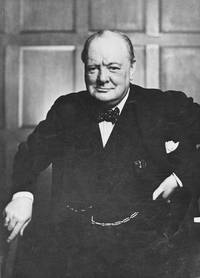
For Educators
Documents for Lesson Plans

Winston Churchill, Parliament Square, London © Sue Lowry & Magellan PR
January 1, 1970
American Citizens’ Letters to Churchill in response to his radio broadcast to America on 16 October 1938.
Speech (“The lights are going out”)
Audio excerpt with the memorable phrase “We Must Arm”
Anonymized facsimiles of four letters with transcriptions of two handwritten ones
Psalm-style format of a single page from The Defence of Freedom and Peace Speech, 16 October 1938, beginning with “We must arm.”
Lesson plan (Hart) using the speech and four letters
Lesson plan (see Patrick, under The Path to World War II) using this speech and two other speeches in 1939 and 1941
Churchill Centre. Churchill for Young People
This sixteen-page booklet, developed by Debby Hern and the Churchill Centre, is free for download here. Individual pages may also be printed.
Churchill, Winston. Churchill and the “The Flying Peril,” 1913-1955
Quotes from Churchill’s speeches on the topic of air power and bombing, selected by Richard M. Langworth. The title quote, so quintessential Churchill, reads, “The flying peril is not a peril from which one can fly. It is necessary to face it where we stand. We cannot possibly retreat. We cannot move London.”

2024 International Churchill Conference
Churchill, Winston. “Be Ye Men of Valor,” (Annotated) May 19, 1940
This annotated version of of Churchill’s first radio broadcast as prime minister (on the BBC) includes helpful information for students and teachers, plus a map. See here for a non-annotated, printable copy.
Churchill, Winston. “Be Ye Men of Valor” Single Page Primary Document
Psalm-style format of a single page from the “Be Ye Men of Valor” Speech, 19 May 1940, beginning with “I have received from the Chiefs of the French Republic . . .”
Churchill, Winston. “The Scaffolding of Rhetoric”
Churchill wrote this unfinished essay on his theory of oratory in 1897 at the age of twenty-three. He never published it, but it appeared in Finest Hour 94, the quarterly Journal of Winston Churchill, published by The Churchill Centre, in the Spring of 1997.
Gilbert, Martin. Winston S. Churchill, Volume VII, Road to Victory, 1941-1945. London: Heinemann, 1986
This excerpt from the official biography highlights the bombing of Dresden and general Allied bombing policy during March and April of 1945.
Gilbert, Martin. “Churchill and Bombing Policy” The Fifth Churchill Centre Lecture. Washington, D.C. 2005
Aviation, air power and bombing were part of Churchill’s life for half a century. As a thirty-four-year-old member of the British Government’s Committee of Imperial Defence, he told his colleagues on 25 February 1909: “The problem of the use of aeroplanes is a most important one, and we should place ourselves in communication with Mr. Wright, and avail ourselves of his knowledge.” In 1913, Churchill learned to fly. Gilbert’s lecture reviews Churchill’s thinking on air power and bombing over the course of his life.
Harmon, Christopher C., “Are We Beasts?” Churchill and the Moral Question of World War II “Area Bombing.” Naval War College Press, 1991
A frequent question in our educational programs is why the Allies bombed Dresden, whether Churchill was responsible for that decision, and why the decision was made. Dr. Christopher C. Harmon, formerly Kim T. Adamson Chairman of Insurgency and Terrorism, Marine Corps University, and presently Professor of Counter Terrorism at the George C. Marshall Center in Garmisch, Germany, wrote a monograph on this subject that was published by the Naval War College in Newport, Rhode Island.
Mansdorf, Arnie., Churchill: the Right or Wrong Man for the Job 1933-1940? (PowerPoint)
Subscribe
WANT MORE?
Get the Churchill Bulletin delivered to your inbox once a month.




